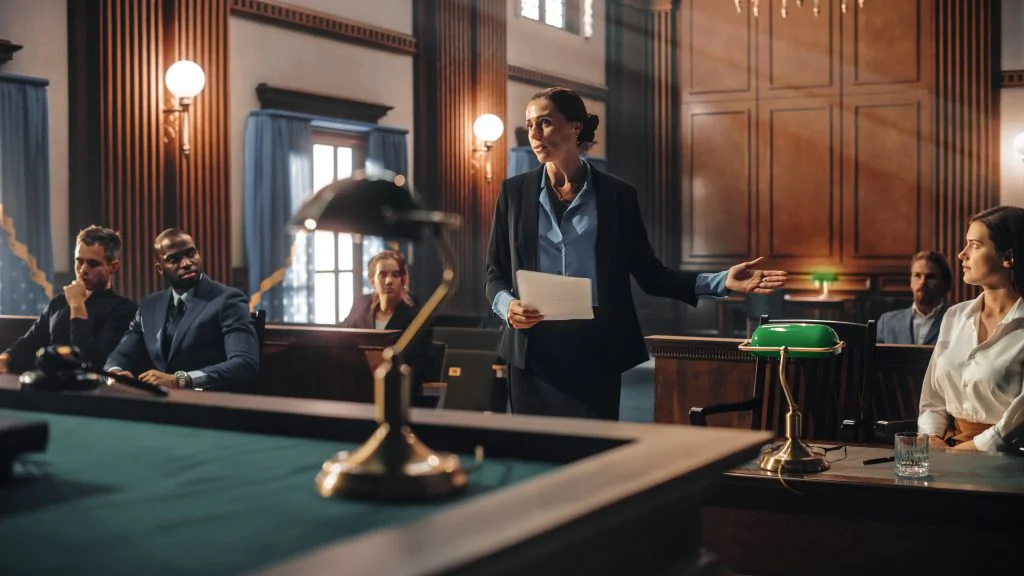Clients have the right to switch lawyers or cancel their services if they aren’t satisfied with how they handle their case. There are many reasons a client might decide to end a relationship with their legal teams. They may feel they aren’t being represented well, that their attorney isn’t taking their case seriously, or their personalities simply may not match. This article will cover what to consider before firing an attorney, the best reasons for letting them go, the best way to handle switching legal teams properly, and the challenges you may face along the way.
What to Consider Before Firing Your Attorney
Firing an attorney is a decision that should be made only after careful consideration. Before you make the break, take time to consider the following to ensure you have a smooth and successful experience throughout the legal process:
- Consider the specific reasons why you want to end their services. Is your attorney the main cause of your frustrations, or the challenges presented by your case itself?
If you feel uncomfortable with an attorney’s personality, level of experience, or the amount of care taken in working on your case, then changing legal teams is highly advised. Clients who do not mesh well with their attorneys are likely to have a rough and unsuccessful legal experience.
However, if your frustrations are specific to the details of your case, and not your attorney, keep in mind that the same challenges are likely to surface, regardless of who you hire. - Is it too late to switch legal teams? When a trial is pending, the court may frown on such a change, anticipating delays. This is especially true when the trial is in progress or just about to begin, and no replacement attorney has been designated. The judge may not allow the change at all.
- If you’ve already switched attorneys, doing so again may hurt your case. Multiple attorney switches makes you and your case seem suspicious in court.
- Is your case moving forward successfully, regardless of your concerns? It may take time for a new attorney to get up to speed on the fact-finding and research associated with the lawsuit.
Switching legal teams means getting to know a new attorney, transferring all information and documents, getting your new legal team up to speed on your case… all of which takes time. Consider whether you would be able to reconcile with your attorney in order to keep your case’s progress on track. - Consider the financial responsibility involved. Clients are not going to get a refund for legal fees they may have paid to retain the lawyer. Ditto for expenses and any hourly fees for work already performed. Now they may be paying out again for another attorney.
Can You Fire a Lawyer After Signing a Contract?
Yes, clients can switch or cancel services even after entering a contingency fee contract with their attorney. Although contracts are legally binding, a client’s decision to stop working with a hired attorney will not be opposed in court. Attorneys will likely avoid conflict and file for withdrawal from their client’s case to protect their firm’s reputation.
Attorneys in contingency fee contracts may be entitled to a share of the winnings based on merit. This could be substantial depending on how much work he performed. Sometimes that attorney will place a lien on any monies the client wins in court. This is information the new attorney needs to know and may determine whether he wants to take the case.
There is always the option to avoid an hourly attorney the second time around and choose a personal injury attorney who only gets paid from a successful settlement, so you never have to pay out of pocket, and only if you win.
The Best Reasons to Fire an Attorney
If you encounter the following red flags from your attorney throughout the legal process, firing your legal team is highly advised.
- They don’t return calls: Communication between an attorney and client is key to any successful case. If an attorney leaves the client guessing about the status of his case and doesn’t return phone calls, miscommunication occurs, deadlines are missed, delays multiply, and a sense of distrust develops.
- Questionable strategy: There are situations in which a lawyer is moving in a direction their client doesn’t like. The client may want to settle, but the lawyer is already gearing up for the trial. Attorneys and clients need to be on the same page if both parties are to walk away satisfied.
- Poor work conduct: Attorneys must have enough experience with cases similar to yours to represent you successfully. The ability to keep documents organized, keep appointments, meet required timelines, and plan strategies like depositions are all baseline requirements for competent attorneys.
- Lack of compassion: When dealing with a serious injury, clients need all the help they can get from their legal team. Injury attorneys should go above and beyond in taking as much of the legal process off their client’s plate, so they can focus on healing. A good attorney will show empathy for their client, and never talk down to them.
- Theft of client funds: Attorneys are bound by a code of ethics, which requires they act in their client’s best interest. Still, there are cases in which lawyers do mishandle, or even steal, client funds. In fact, theft is the most common reason for lawyers getting disbarred. To safeguard clients, it’s mandated that their monies be maintained in an account that their legal teams can’t touch.
- Exorbitant charges: Some attorneys may charge excessively for parking and other expenses, or they might rack up an hourly bill that far exceeds the client’s expectations or budget. It may be in the client’s best interest to fire such lawyers and switch to a legal team that gets paid pro bono. This means the attorney only gets paid if they win, from a portion of the settlement, so the client never pays out of pocket.
- Violating confidentiality: Attorneys must not divulge confidential information from clients with others. What’s revealed in court or settlement negotiations must be agreed upon. Confidential information falls under attorney-client privilege, and failure to respect this calls for a cancellation of services.
- Unnecessary delays: Clients have a right to expect that their attorney has the time to move the case along as quickly as possible. If the attorney calls for needless delays and continuances, it could be time to look elsewhere.
How to Fire an Attorney
Before writing a letter of termination for your attorney, protect your interests by doing the following:
- Review any contract or retainer agreement signed with the attorney. Pay particular attention to steps outlined for dismissing the attorney.
- Interview new attorneys before firing your original one to ensure a smooth transition, with no time wasted in between legal teams. It’s important not to lose time with the switch and delay court proceedings.
- Make sure the new lawyer will inform the court of the change.
Write a Termination Letter
A termination letter must be written by a client to officially fire an attorney. The letter must include the following:
- A brief explanation of the grounds for a breakup. There is no need for excessive details or rudeness.
- A request for copies of all documents and records relating to the case. Ideally, these records would be forwarded to the new attorney. Be aware that the attorney may consider this a professional service, and thus may request payment, if they are paid by the hour. The attorney may even withhold these files until paid any funds owed.
Explore Your Options in Free Consultations
One of the best ways of ensuring the right legal representation is asking questions before hiring an attorney. Consultations are a great opportunity to get to know an attorney and whether they can handle one’s case.
Call 885-GOT-SOBO or schedule an appointment online for a free consultation, and get the experience and professionalism needed to win your settlement.




